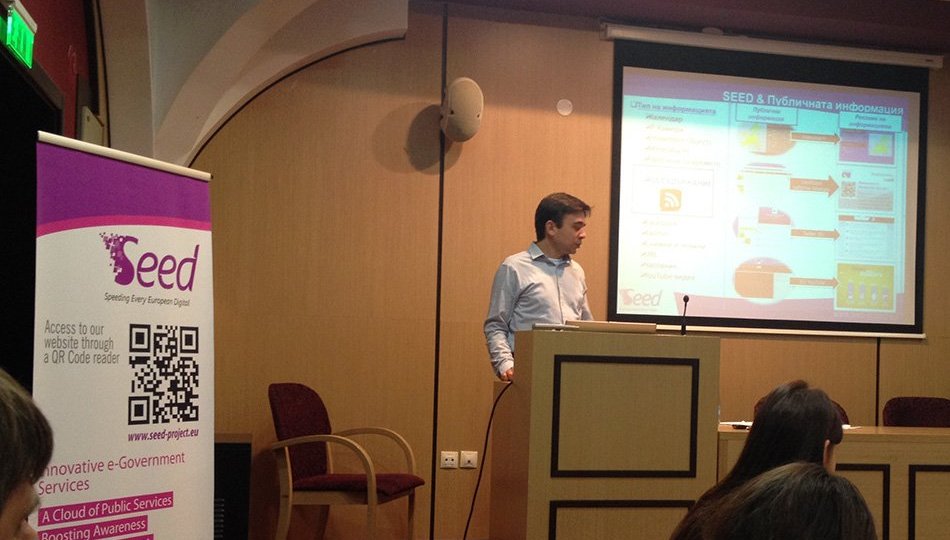Bulgarian consulting company Balkan Services is one of the thirteen partners of the recently launched Project SEED (Speeding Every European Digital - facilitating citizens' access to public information). The project aims to raise citizens' awareness of existing services and content within the initiative of "e-government" and to facilitate access to electronic services offered by the public sector in the European Union. The project will continue until June 30, 2014.
The idea of SEED is, by using technology of the type "cloud" and highly affordable network for interactive advertising of public services (i-PSA - Public Service Advertising), to boost the positive results of European initiatives on e-government and increase citizen-oriented provision of services, using to the maximum public information already provided at European, national, regional and local level (PSI -Public Service Information). The SEED project is being developed by a consortium consisting of 13 partners from eight European countries - EU members. Besides Bulgaria, the other participating countries are Cyprus, Croatia, Czech Republic, Latvia, Malta, Romania and Spain. Within SEED there will be implemented several pilot projects in various European cities (in Bulgaria, for example, there will be a project in the Municipality of Varna). SEED is partially funded by the Policy Support Program for Information and Communication Technology (ICT PSP).
The project is aimed at citizens, particularly those with low e-skills and "at risk of e-exclusion," who at the same time and frequent users of public services. These citizens visit public places to get information about things that are important to them, such as looking for work or paying taxes, and they are often not aware of the new opportunities allowing for a much better service. The project equipment will be placed in public places (municipal administration, hospitals, gyms, parks, main streets, shopping malls, etc.). And thus citizens will have the opportunity to take advantage of the attractive messages that had gained their attention. For example, citizens waiting their turn in the Town Hall to resolve a problem will be informed by a series of interactive messages on how to avoid the queues by using a self-service kiosk in the same building; the elderly who do not have home computers will have the opportunity to always be well informed about the activities of the municipality and other municipal and state structures aimed at the elderly; other citizens who use computers and have access to information but are unemployed, can be informed through these message about open job positions (local, regional, national and even European sources (via the portal "EURES") while strolling down the street. Ultimately, the aim of SEED is to improve direct communication with citizens, showing them practical information they can use while performing other activities (waiting to be serviced or searching for information). The project is expected to become sustainable in the future and be applied in other public administrations.
More on the European Programme ICT-PSP: the Policy Support Program for Information and Communication Technology aims at a wider uptake and best use of ICT and digital content by citizens, administration and businesses, particularly small and medium enterprises. Each year the program initiates acceptance procedures for proposals in order to fund those projects that contribute to achieving the above objectives. The SEED project was chosen at the fifth call for proposals intake in 2011 as a pilot B: stimulating the application of innovative services based on information and communication technologies and products in theme 4.1: To a cloud for public services.
11 june 2015
European SEED project will promote the services of "electronic government"

